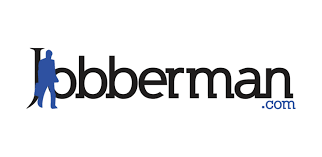A new report by Jobberman Nigeria has revealed that nearly 9 out of 10 employers in Nigeria do not include marginalised groups in their recruitment process. This development has raised concerns about growing inequality and lack of access to job opportunities, especially for women in poor communities, people living with disabilities, and internally displaced persons.
The report was presented during a roundtable discussion titled Technology and Employment Inclusion in Marginalised Contexts. The event was held recently in Abuja and attracted stakeholders from different sectors including government, private companies, civil society, development partners, and digital platforms. Jobberman organised the event in partnership with the Mastercard Foundation through the Young Nigeria Works programme.
Speaking at the roundtable, Hilda Kabushenga, the Chief Executive Officer of The African Talent Company, the parent company of Jobberman, said technology should not divide people but should bring inclusion. According to her, as the world of work continues to change, all Nigerians, including those from marginalised backgrounds, must be carried along.
“Technology can and must be a force for inclusion, not division. As the world of work evolves, we must ensure that no one is left behind. Today’s conversations are not just about technology, they are about equity, access, and opportunity,” Kabushenga stated.
Also speaking at the event, Temi Dalley, who is the Group Executive for Human Capital and Corporate Services at Sterling Financial Holdings, said technology has the power to transform how people access jobs. But she warned that unless there are deliberate efforts to make it fair and accessible, it could further widen the gap between privileged and vulnerable groups.
She urged all stakeholders to work together to invest in digital infrastructure and build the skills needed to support inclusion. Dalley added that making the workplace inclusive should not be seen as doing charity but as something necessary for national development and innovation.
The Senior Special Assistant to the President on Special Needs and Equal Opportunities, Abba Isa, also delivered a keynote address. He was represented by his Director of Media and Communications, Lanre Oloyede. Isa used the opportunity to appreciate Jobberman and Mastercard Foundation for creating a platform to address these issues.
He called on all stakeholders to come up with practical solutions to reduce the digital divide and make it easier for persons with disabilities, displaced persons, and women in low-income communities to get jobs. Isa also suggested that the National Disability Act should be amended so that the private sector will have a legal quota for hiring persons with disabilities.
In her goodwill message, Dr Kafui Mills-Odoi, Head of Inclusion at Mastercard Foundation Nigeria, said more attention must be given to women, youth, and persons with disabilities. She noted that even though technology is bringing new job opportunities, it must be used in a way that breaks barriers and not create new ones.
Dr Mills-Odoi added that in order for inclusion to happen in today’s digital world, employers and policymakers must think in a human-focused way and redesign systems so that everyone, especially those from underserved backgrounds, can benefit.
Also speaking at the event, the Country Director of Mastercard Foundation Nigeria, Rosy Fynn, said the organisation is committed to building an economy that benefits all, including the marginalised. She explained that their goal is to help 30 million young Africans—especially women—find dignified and meaningful work by 2030.
“Inclusion is not a side conversation; it is the main agenda. We must design systems where marginalised groups are not just considered but centred,” Fynn stated.
The report presented by Jobberman also pointed out that many employers are not making any effort to promote inclusion. About 72% of employers in the formal sector admitted they are not doing anything to include persons with disabilities or other disadvantaged groups. Also, 9 out of 10 employers do not actively try to hire anyone from these groups.
Transport issues, lack of skills, and poor educational support were listed as the major reasons why many people living with disabilities and those in displaced communities are left out. For instance, the report found that 85% of schools in Nigeria are not built to support people with disabilities, and 63% of persons with disabilities do not have the needed skills for employment.
Interestingly, the report revealed that some people are still able to find work, mostly through self-employment. About 55% of persons with disabilities and 44% of displaced women have found jobs in areas like creative arts and farming.
The report called for more inclusivity training for employers, use of digital tools to support remote work, and public recognition for companies that support inclusion. During the event, breakout sessions were held to discuss solutions for the different vulnerable groups. These discussions are expected to guide future policies and advocacy to improve job access for marginalised Nigerians.
